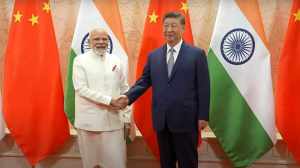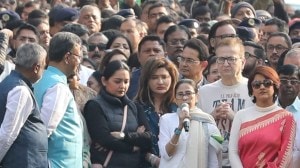Technology is a culture
There are some people who act as if economic policies, and particularly technological change, which is spawning some of our great success st...

There are some people who act as if economic policies, and particularly technological change, which is spawning some of our great success stories is possible, as it were, in a vacuum of cultural beliefs. Technology is not just about biotech seeds, computerisation or machines. There are many instances when such symbols of technology lie unused or misused while in a literal sense, the technology is there. The more interesting question is whether we have the institutions, beliefs or systems of incentives and disincentives which can use technology or adapt it to our needs.
Attending a think tank on globalisation and development, I was taken aback when the president of a university which has a great reputation for playing a nurturing role in integrating modern technology and knowledge with the growth of the region in which it is located, embarked on describing the historical cultural factors which led to the emergence of cultural strengths that made technology a major driver in the growth of the modern world. Incidentally these issues are important, because India is now clearly seen as an actor on the global scene, emerging as a factor to be reckoned with in the global discourse.
This gentleman, leading an organisation which played a pivotal role in integrating information and communication technology with the development of the region in which he was located, and communicating among others with CEOs of leading major technology driven companies, started his story with the discovery of the printing press in the western world many centuries ago in Germany. Without this, he argued, that technology and its message would not have spread. Simultaneously, Martin Luther was questioning the ex opera operata of the received Catholic religion and was demanding, amongst other factors, that religion must be in the language of the people and Machiavelli was showing how the emerging trends could be used to strengthen the state and its prince. A small group of people, the gentleman argued, with a vision of the future and with an understanding of the reality around them can change the world. Spain, he argued, failed as a state at that time because it persecuted the Moors who were important in science and technology of that period at the University of Salamanca.
Our country is passing through tumultuous times, when the future is in our hands. Serious thinking suggests that our remarkable software performance depends on the investment we made in higher education in the early years, but also on our cultural way of life. As a Japanese observer points out, when the competitor is recovering from a hangover, the Indian boys have said thir morning prayers, had their Indian breakfast and are solving the problem. We cannot in a period of great opportunity believe that we can doctor history books, question the basis of technology, which is the belief that science consists of an approach which centrally holds that expected outcomes can be rationally tested through experimental methods and refuted if not validated, and still pretend that we will meet our destiny in the modern world. No country which encourages mumbo jumbo as science will ever achieve its potential. Growth to be enduring has to be a matter of integrating science and its methods with the life of the people at large and not in advertisements at public expense of government S038;T programmes.
It wasn8217;t always like that. When the printing press was being discovered by the Germans and the Renaissance was emerging, the Jagat Sheths in Gujarat were trading with the merchant princes of Europe and originated the hundis, which in practice are the precursors of your credit card. That money can be exchanged without transporting it was a revolutionary idea and we can take credit for it. Seventeenth century Ahmedabad also faced the problem of a temple. According to the Cambridge History of India when the Jagat Sheth Kishore found out that a superb Jain temple he had built close to Ahmedabad was being used for namaz by a local official, he used his clout in the court in Delhi to get the man punished and got the temple reclaimed. He also got the ulema to say that Islam did not permit this. The point is not that he did it, but that he had the confidence that he was right and had the cultural strength to press his interest and succeed. Many centuries later, Gandhiji was to do the same thing. He said he was right and pressed his case and won. In the process he built up a system which took on the empire on which the sun would never set and showed that they were wrong, we were right and they would have to go. Do our institutions have the strength now to intervene and achieve objectives without senseless violence? The whole world is looking on.
- 01
- 02
- 03
- 04
- 05































